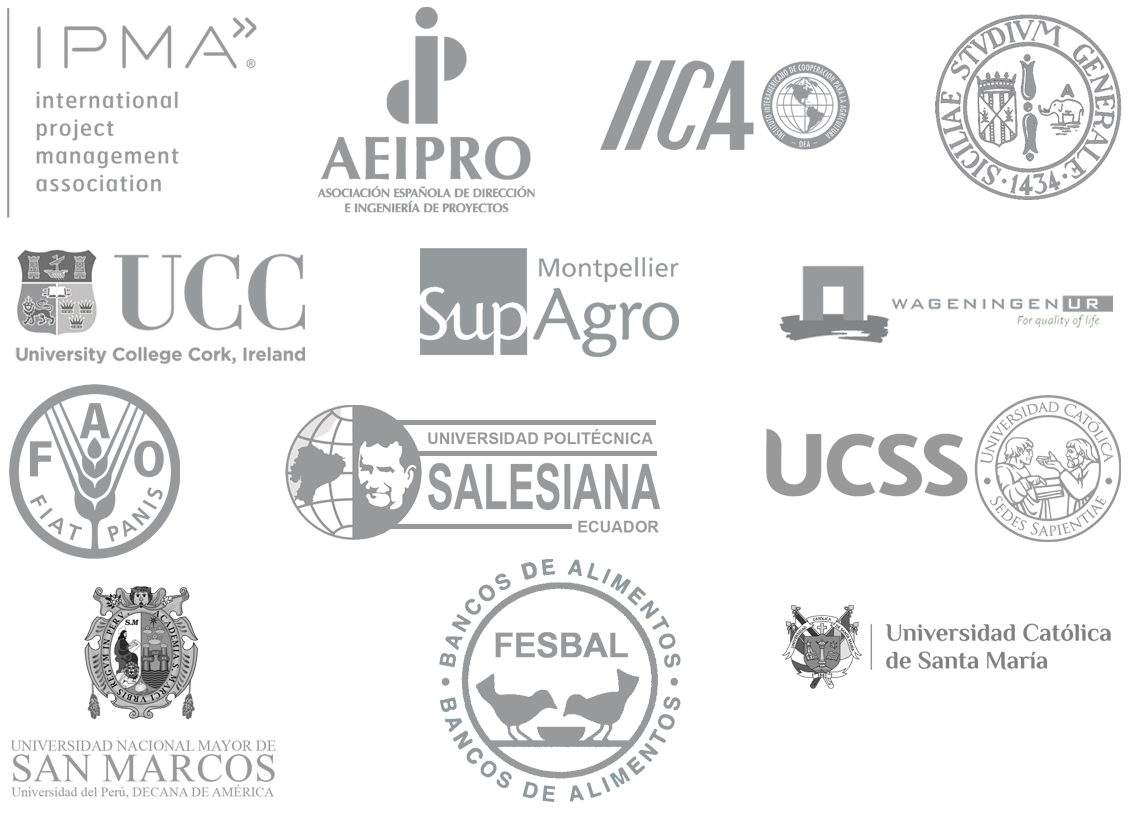2016.-Rural Communities in the Global Economy: Beyond The Classical Rural Economy Paradigms
 |
Autores: | Adolfo Cazorla; Ignacio de los Ríos; Carlos Alberto Ávila Cerón; Nicolae Istudor; Raluca Andreea Ion; Iuliana Dobre; Zaharia Marian; Gogonea Manuela; Andrei Jean Vasile; Carmen Lenuța Trică; Edgar Gordillo; Jianu Daniel Mureşan; Mihail Vincenţiu Ivan; Cristian Dragoș Teodorescu; Daniela Rodica Iov; Vera M. Popović, Vladimir Sikora; Vladan Ugrenovic; Vladimir Filipovic; Adrian Ungureanu; Violeta Sima; Ileana Georgiana Gheorghe; Grujić Biljana; Ljubić Marijana; Irene Buele; Pablo Vidueira; Fernanda Leopoldo; Silva Maschietto and José María Díaz Puente. |
| Título del libro: | Rural Communities in the Global Economy: Beyond The Classical Rural Economy Paradigms | |
| Editores: | Istudor Nicolae, Ignacio de los Ríos and Andrei Jean Vasile | |
| Fecha: | 2016 | |
| Lugar: | UK ed. edition | |
| Editorial: | Nova Science Publishers | |
| ISBN/ISSN/DOI: | ISBN: 978-1-53610-255-0 | |
| Enlace: | Pinche aquí |
About the book
This book fills a gap between theory and practice in the field of the rural communities’ research. The book consists of fourteen chapters which analyze specific aspects and suggest possible solutions regarding rural communities in the global economy, insisting on the recent transformations of the classical rural economy paradigms in contemporary economies.
The main topics of the book are centered but not limited to the following aspects:
- Recent transformations of the rural communities
- Rural paradigm agricultural and food models
- Rural sustainable investments
- Consumption models
- Business investments strategies in rural areas
- Transition economics and market reforms in rural economy
- Market inequity and rural economy
- Business models and start-ups in rural areas
This book tries to provide insights and support for policy makers, investors, researchers – all of this connecting to the rural communities in the global economy. In this context, the objective of the book is to provide relevant theoretical frameworks and the latest empirical research findings in the area of green rural communities in the global economy and their impact on sustainable development of competitive markets. The main objectives of the book are:
- to create a reference for professionals, practitioners, academia and students in field of the rural economy paradigms;
- to present and analyze the latest findings in the field of the recent transformations of the rural communities;
- the paradigms change of rural communities in the global economy;
- to create a working paradigm regarding the rural economy.
The book, Rural Communities in the Global Economy – Beyond The Classical Rural Economy Paradigms will definitely impact editors’ fields of research, since it is mainly related to the rural communities in the global economy and the sustainable development of the rural economy through a range of activities, including green entrepreneurship and the “working with people” model. The publication is also a continuation of editors’ research of the rural communities in the global economy taking into account the structures in modern business and society.
Convinced of its utility, the editors are confident that Rural Communities in the Global Economy – Beyond the Classical Rural Economy Paradigms will become a milestone in the field and will stir debates regarding this research topic. This book is addressed to professionals and researchers working in the field of rural communities’ economy research and management.
Table of Contents:
- Chapter 1. Rural Community Management in the Global Economy: A Planning Model based on Innovation and Entrepreneurial Activity (Adolfo Cazorla and Ignacio de los Ríos, Technical University of Madrid, Spain)
- Chapter 2. Alternative Development in Rural Communities Affected by the Illegal Economy: The Case of La Macarena (Colombia) (Carlos Alberto Ávila Cerón and Ignacio de los Ríos Carmenado, Coordinador de Planes de Transición PCIM, Colombia, and others)
- Chapter 3. Increasing the Performance of the Vegetable Chain in Romania (Nicolae Istudor, Raluca Andreea Ion and Iuliana Dobre, The Bucharest University of Economic Studies, Faculty of Agro-food and Environmental Economics, Romania)
- Chapter 4. The Triunivocal Relationship of Rural Tourism – Regional Development – Sustainability (Zaharia Marian, Gogonea Manuela and Andrei Jean Vasile, Petroleum-Gas University of Ploiesti, Prahova, Romania, and others)
- Chapter 5. Eco-Entrepreneurial Development in the Rural Environmental Area (Carmen Lenuța Trică, Bucharest University of Economics Study, Bucharest, Romania)
- Chapter 6. Development of Competencies for the Socio-Productive Inclusion of Vulnerable Young Persons: The Case of Paces Foundation in Cuenca (Ecuador) (Edgar Gordillo and Ignacio de los Ríos Carmenado, Manager PACES. Universidad Politécnica Salesiana, Ecuador, and others)
- Chapter 7. The Development of Rural Communities in Romania in the Context of European Policies (Jianu Daniel Mureşan and Mihail Vincenţiu Ivan, Petroleum-Gas University of Ploiesti, Faculty of Economic Sciences, Romania)
- Chapter 8. The Role of Financing in the Sustainable Development of Rural Communities (Cristian Dragoș Teodorescu and Daniela Rodica Iov, Petroleum-Gas University of Ploiești, Faculty of Economic Studies, Romania)
- Chapter 9. Status of Buckwheat (Fagopyrum esculentum) Production in the Worldwide and in the Republic of Serbia (Vera M. Popović, Vladimir Sikora, Vladan Ugrenovic, and Vladimir Filipovic, Institute of Field and Vegetable Crops, Novi Sad, Serbia, and others)
- Chapter 10. The Importance of Rural Tourism in Romanian Village Development (Adrian Ungureanu, Petroleum-Gas University of Ploieşti, Prahova, Romania)
- Chapter 11. The Potential of Young People from Rural Communities in Romania (Violeta Sima and Ileana Georgiana Gheorghe, Petroleum-Gas University of Ploiesti, Business Administration Department, Romania)
- Chapter 12. The Contribution of the Agrarian Budget to Rural Development in the Republic of Serbia – Case Study (Grujić Biljana and Ljubić Marijana, Institute of Agricultural Economics Belgrade, Serbia, and others)
- Chapter 13. Participatory Budgeting and Dinamization of Rural Economy: Research and Implications (Buele Irene and Vidueira Pablo, Universidad Politécnica Salesiana, Ecuador, and others)
- Chapter 14. Partnerships to Strengthen the Value Chain of Community-Based Ecotourism: The Experience of Comon Yaj Noptic in Chiapas, Mexico (Fernanda Leopoldo e Silva Maschietto and José María Díaz Puente, Technical University of Madrid, Spain)













